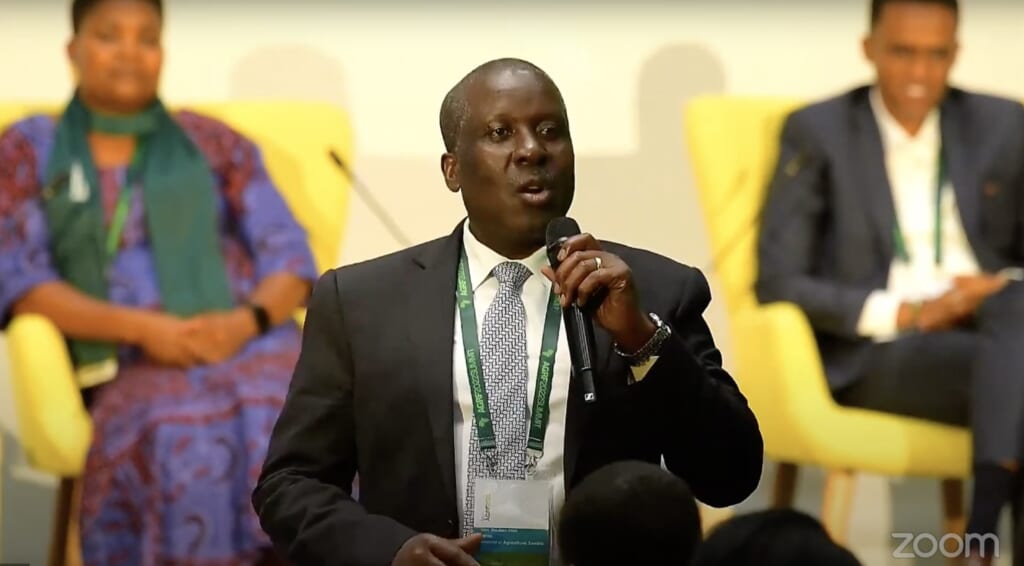$1B effort to fight African hunger put farmers in debt and poisons in soil, critics say
The Alliance for a Green Revolution in Africa (AGRA) is facing backlash from environmental activists and farmers for allegedly promoting the release of poisonous chemicals into the soil and putting some farmers in debt.
A $1 billion philanthropic effort promising a “green revolution” for African agriculture has fallen far short of its goals, according to critics who say the project has yielded more harm than good for local farmers and crops.
The Alliance for a Green Revolution in Africa (AGRA), launched in 2006 largely through funding from the Bill & Melinda Gates Foundation, is facing backlash from environmental activists and farmers for alleged industrial practices that have released poisonous chemicals into the soil and put some farmers in debt by requiring costly seeds, pesticides and fertilizers, per the Seattle Times.
The controversial implementations, which have reportedly resulted in some indebted farmers selling their land and belongings as well as dying by suicide, were termed “the second phase of colonization” by Kenyan ecological activist Celestine Otieno.

AGRA, co-funded by the Rockefeller Foundation, aims to reduce hunger and increase agricultural productivity by planting high-yielding seeds, using chemical fertilizers and promoting new environmental research methods across Africa, according to the outlet.
The alliance this week will begin a rebranding campaign amid increased scrutiny following a donor-funded evaluation in December 2021 that found the project “did not meet its headline goal of increased incomes and food security.”
Changes will include AGRA’s official title no longer using the term “green revolution,” a decades-old movement implemented in multiple countries to mixed successes and failures, according to the Seattle Times.
Among the benefits of AGRA found in the December evaluation were higher-yielding corn crops across roughly half of the countries analyzed. Additionally, AGRA President Agnes Kalibata said the project has helped upwards of 800 Africans earn master’s and doctorate degrees in agriculture, as reported by the outlet.
However, Kalibata and other project leaders have credited climate change as the main reason the initiative has thus far fallen short, as many have struggled to combat the impacts of consecutive drought seasons that have severely harmed farms without access to irrigation systems.
“In Africa today, the majority of counties are already living in a 1-degree warmer world,” said Enock Chikava, interim director of the Gates Foundation’s agricultural development team, per the Seattle Times.

As reported by the outlet, the project’s latest changes in response to climate challenges include a five-year plan to conduct more rigorous outreach with local farmers to better understand their needs, as well as releasing regular progress evaluations to the public.
Many critics, however, have called for much more drastic overhaul measures. During a panel of advocates for African farmers at a press conference this month, speakers from across the continent lambasted the “failed” initiative and accused the alliance of colluding with the agricultural goods industry to drive revenues.
“What we need now is a green restoration,” Gabriel Manyangadze, who, along with 500 African faith leaders, co-signed a letter to the Gates Foundation requesting the funds for AGRA be redirected to small-scale local farmers using practices that still produce high yields yet do not harm the environment, such as fertilizing crops with manure.
While the letter resulted in a meeting between faith leaders and foundation staff, “we still have not got what we are asking for,” said Manyangadze, who works with the Southern African Faith Communities’ Environment Institute.
Panelists criticized AGRA’s staff and board of directors, whose members include prominent African leaders such as former prime minister of Ethiopia Hailemariam Dessalegn, alleging that corporations that sell the seeds, fertilizers and pesticides farmers rely on annually are the ones truly running the show.
“When will you stop pushing for these green revolution models that have failed?” asked Anne Maina, national coordinator of the Biodiversity and Biosafety Association of Kenya, during the conference.
TheGrio is FREE on your TV via Apple TV, Amazon Fire, Roku, and Android TV. Please download theGrio mobile apps today!


